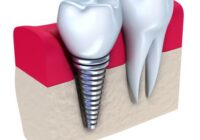
A new study by Massachusetts General Hospital, the Forsyth Institute and the University of California San Francisco is examining whether children’s teeth show signs of trauma as a child grows. The study will look for markings in the teeth that indicate stressful or traumatic events and use those markers to predict whether the child suffers from depression or anxiety later in life.
The study is being conducted on Massachusetts-area mothers who were either pregnant or had infants at the time of the Boston Marathon bombings in 2013. Though this event was likely traumatic for many of the mothers, it would not have been recognized by their children, so the study appears to be more focused on the mother’s reaction to the trauma, and how that reaction may have affected the child.
The study will be performed by analyzing the layers of the children’s fallen teeth – their baby teeth that fall out naturally or are pulled for medical reasons.
Critics of the study say trauma will be a difficult marker to find, but that the task is not impossible.
So, what do the researchers plan to do with this information? According to lead researcher Erin C. Dunn, they hope to use the markers to predict whether a child may suffer from depression or anxiety or other problems later in life. This could help parents better prepare for and understand their child’s behavior, ultimately leading to better treatment options.
Researchers have long used teeth to gain information about human health. For example, we have learned much about diet over the centuries by studying the teeth of ancient human remains, and researchers have examined contaminants such as lead in the teeth of children who may have been exposed to lead or suffered from lead poisoning.
The study highlights just how important teeth are – even in children. They’re not just for chewing food and helping with speech and jaw positioning – they could someday help ward off or prepare for depression, too, giving you all the more reason to take excellent care of your and your family’s oral health.
To schedule an appointment with Dr. Abelar, call 858-523-1400.






